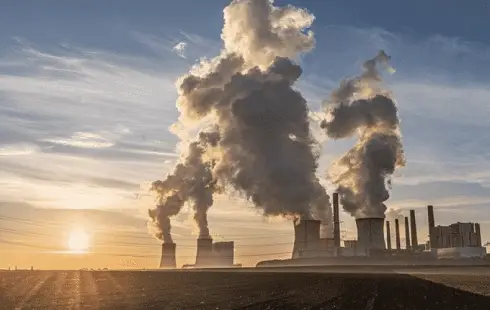
Ukrainian Diplomat Calls for Stronger Security Commitments Beyond NATO-Style Guarantees
Section: Politics
 And the next hurdle is already looming: The reform of emissions trading, the EU's most important climate protection instrument, failed miserably in the European Parliament's plenary session at the first attempt. It was not until the second attempt that the MEPs were able to adopt a position on the legal act last week. This Tuesday, the EU environment ministers will meet in Luxembourg to agree on a common negotiating position. Discussions between the Council of Ministers, the body representing the member states, and the European Parliament on the final version of this directive could then begin in the fall. But Germany, of all countries, is now jeopardizing an agreement in the Council of Ministers.
And the next hurdle is already looming: The reform of emissions trading, the EU's most important climate protection instrument, failed miserably in the European Parliament's plenary session at the first attempt. It was not until the second attempt that the MEPs were able to adopt a position on the legal act last week. This Tuesday, the EU environment ministers will meet in Luxembourg to agree on a common negotiating position. Discussions between the Council of Ministers, the body representing the member states, and the European Parliament on the final version of this directive could then begin in the fall. But Germany, of all countries, is now jeopardizing an agreement in the Council of Ministers.
That's because Berlin is taking a hard line on a related project, the new multi-billion-dollar climate social fund, but the two projects are related. An EU diplomat says Berlin's demands have come "surprisingly and very late" and could torpedo an agreement by EU environment ministers on the overall package this Tuesday. CDU MEP Peter Liese, who is in charge of emissions trading reform in Parliament, complains that "in particular" German Finance Minister Christian Lindner (FDP) is pushing to shrink the climate fund. But if the German government and the finance minister are not more willing to compromise here, the core piece of the EU climate protection package - the tightening of emissions trading - is in danger of failing, he says.
Since 2005, power plants and many industrial companies in the EU have had to produce carbon dioxide certificates when they emit greenhouse gases into the atmosphere. These pollution rights can be traded. Groups that find it easier to reduce CO? emissions can sell surplus certificates. This reduces emissions in the cheapest and most economical way. The planned reform reduces the number of pollution allowances in the system in order to achieve the EU's ambitious climate protection targets. As a result, prices are rising.
In addition, the Commission wants to introduce a separate emissions trading system for gasoline and gas or oil for heating in 2026 - refueling and heating would become more expensive. At the same time, however, 25 percent of the revenue from this system is to go into a new EU climate social fund. This would support national programs through which governments help needy households save energy. Money would be redistributed from richer to poorer member states.
The European Parliament's negotiating position calls for the controversial extension to gasoline and heating oil to be limited to company vehicles and commercial properties for now, so as not to burden citizens. However, the Council of Ministers, the body representing the governments, does not seem to think much of this: The latest compromise proposal between the 27 governments maintains the extension to gasoline and heating oil for citizens, but would postpone that by a year, to 2027. The delay would lower the volume of the Climate Social Fund, from 72 billion euros by 2032 to 58 billion euros.
However, the German government is calling for a much smaller Climate Social Fund. More money would then flow from the extension to national finance ministers and less to this new pot. However, many Eastern European governments argue that they are dependent on lavish aid from this fund if their countries are to implement the ambitious climate protection program. The fear is that if Berlin sticks to its austere position, the poorer member states will not agree to the tightening of emissions trading. The important project could be delayed. The ministers face difficult debates this Tuesday.

Section: Politics

Section: News

Section: News

Section: News

Section: Arts

Section: News

Section: News

Section: News

Section: News

Section: News

Health Insurance in Germany is compulsory and sometimes complicated, not to mention expensive. As an expat, you are required to navigate this landscape within weeks of arriving, so check our FAQ on PKV. For our guide on resources and access to agents who can give you a competitive quote, try our PKV Cost comparison tool.

Germany is famous for its medical expertise and extensive number of hospitals and clinics. See this comprehensive directory of hospitals and clinics across the country, complete with links to their websites, addresses, contact info, and specializations/services.

Join us at the Kunstraum in der Au for the exhibition titled ,,Ereignis: Erzählung" by Christoph Scheuerecker, focusing on the captivating world of bees. This exhibition invites visitors to explore the intricate relationship between bees and their environment through various artistic expressions,...
No comments yet. Be the first to comment!